Teaching Gratitude to Toddlers: Starting the Year with Kindness
Let's be honest – teaching gratitude to toddlers might seem as challenging as teaching fish to juggle! After all, these are the same tiny humans who might throw a tantrum because their sandwich was cut into squares instead of triangles. But here's the thing: even the youngest children can learn to appreciate the good things in their lives. And what better time to start than the new year?
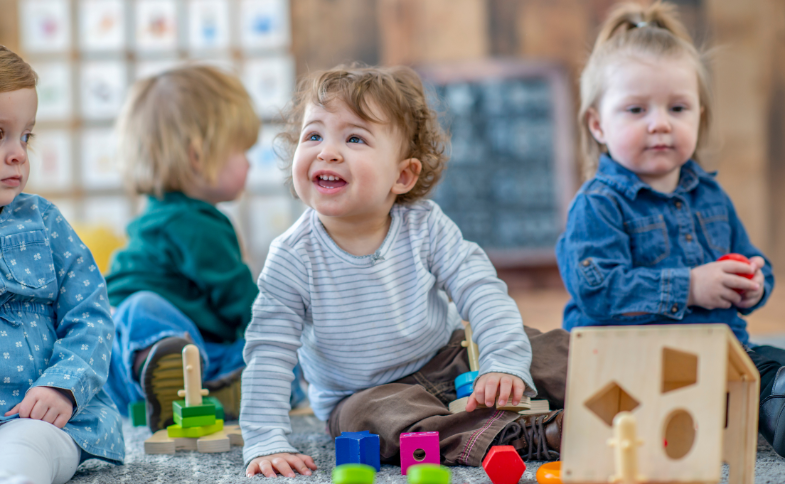
Why Teach Gratitude to Toddlers?
You might be wondering if toddlers can really understand gratitude. While they might not grasp the full concept, they're absolutely capable of learning the building blocks. Think of it like planting tiny seeds that will grow into something beautiful over time.
The Benefits Go Beyond “Thank You”
- Happier kids (yes, really!)
- Better relationships with others
- Increased empathy
- More resilience when things don't go their way
- A more positive outlook on life
Starting Simple: The Basics of Toddler Gratitude
Model, Model, Model
Kids are like little sponges – they soak up everything we do. Want to teach gratitude? Start with yourself:
- Say “thank you” often (even for small things)
- Express appreciation out loud (“I'm so happy we get to play together!”)
- Show gratitude to others in front of your child
- Point out when others are kind or helpful
Daily Opportunities for Teaching Gratitude
Mealtime Moments
Every meal is a chance to practice gratitude:
- Thank the person who made the food
- Express joy about favorite foods
- Talk about where food comes from
- Appreciate eating together as a family
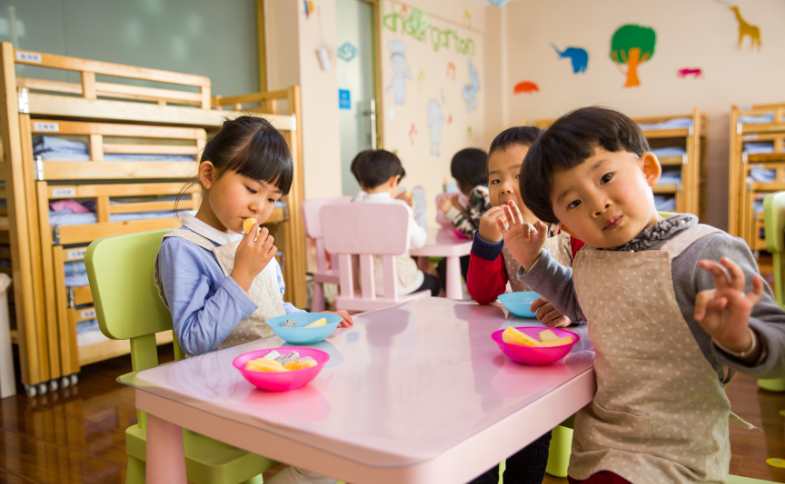
Bedtime Reflections
Turn bedtime into a gratitude practice:
- Share one good thing about the day
- Thank stuffed animals for being cuddly friends
- Express appreciation for comfort items
- Create a simple bedtime gratitude ritual
Making Gratitude Fun (Because Everything's Better When It's Fun!)
Games and Activities
Try these playful approaches:
- Gratitude scavenger hunt (find things that make you happy)
- “Thank you” drawing sessions
- Kindness dress-up (pretend to be helping heroes)
- Gratitude dance parties (shake your thankful sillies out!)
Handling the Challenges (Because There Will Be Some!)
When “Thank You” Feels Forced
We've all been there – that awkward moment when you're prompting your toddler to say thank you, and they're just not having it. Here's what helps:
- Skip the forcing (it rarely works anyway)
- Model the behavior instead
- Acknowledge when they do show gratitude naturally
- Remember they're still learning
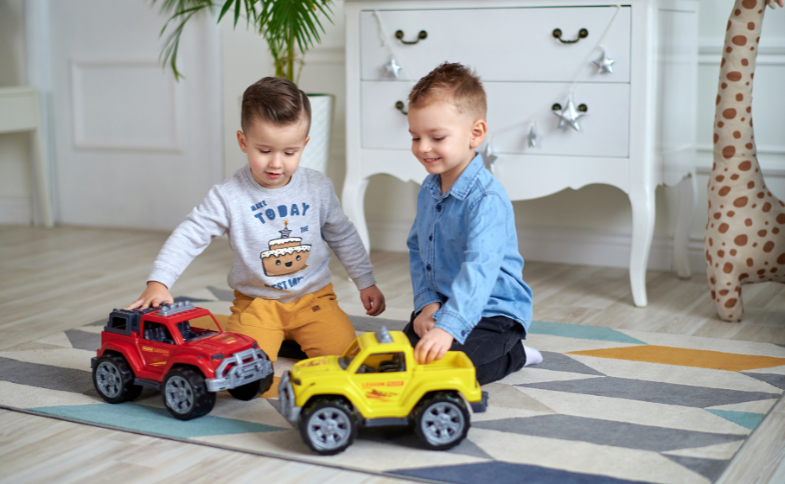
Creating Gratitude Rituals
Simple Daily Practices
- Morning “happy thoughts”
- Thankful songs during cleanup
- Gratitude walks (notice good things outside)
- Kind words at mealtimes
Teaching Empathy Alongside Gratitude
Understanding Others' Feelings
Help your toddler notice:
- How others react to kindness
- What makes friends happy
- How helping others feels good
- The impact of their actions on others
Making It Stick: Long-Term Gratitude Practice
Beyond the Basics
As your toddler grows:
- Start a family gratitude jar
- Create thank you cards together
- Practice random acts of kindness
- Notice and celebrate others' grateful moments
Seasonal and Special Occasion Gratitude
Holiday Helpers
Use special times to reinforce gratitude:
- Make thank you gifts for helpers
- Create celebration traditions that include giving
- Talk about the meaning behind holidays
- Share family gratitude stories
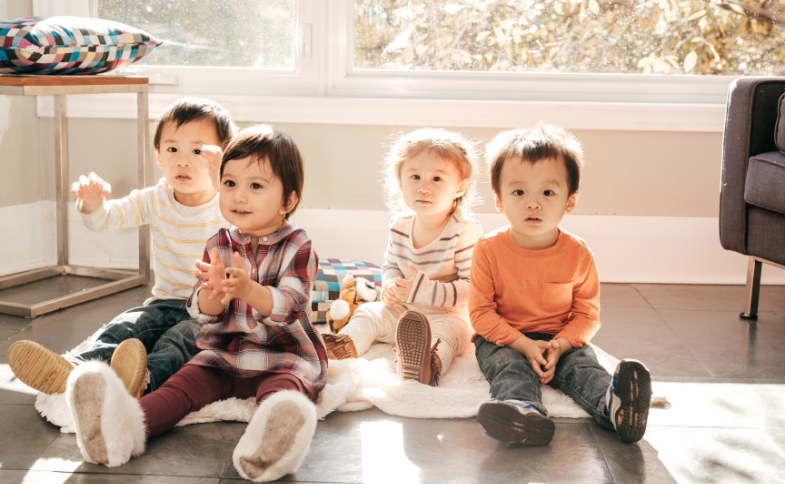
When Things Get Tough
Gratitude During Challenging Times
Even toddlers have bad days. Help them:
- Find small things to appreciate
- Express feelings appropriately
- Remember past happy moments
- Look forward to future good things
Age-Appropriate Expectations
What's Realistic for Toddlers
Remember:
- Gratitude develops gradually
- Expression may be inconsistent
- Actions speak louder than words
- Every child develops differently
Making It a Family Value
Creating a Grateful Home Environment
- Display family photos and talk about happy memories
- Create a kindness corner
- Celebrate helpful actions
- Share family gratitude stories
The Power of Small Moments
Finding Joy in the Little Things
Teach your toddler to notice:
- Sunshine after rain
- A friend's smile
- A favorite song
- A warm hug
Building on Success
Growing Gratitude Over Time
As your toddler gets better at showing gratitude:
- Add new gratitude practices
- Increase complexity gradually
- Let them lead sometimes
- Celebrate their growth
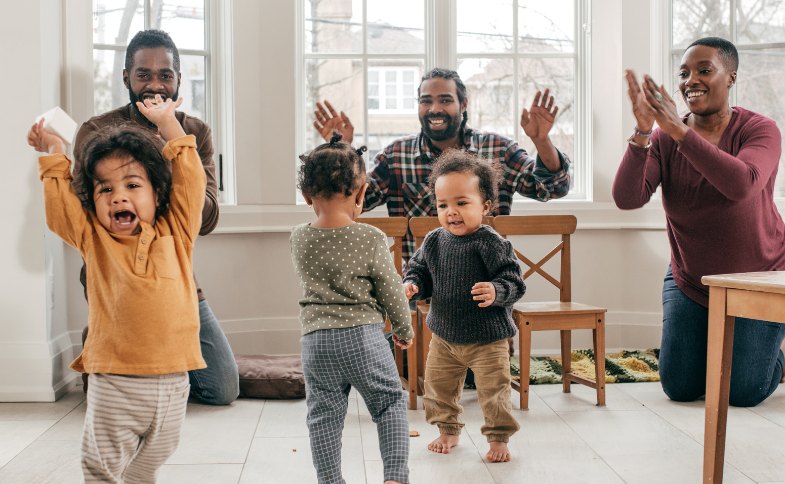
Common Questions and Concerns
Addressing Parent Worries
- “Is my child too young?” (Never too early to start!). Even the youngest children can begin learning the foundations of gratitude and that starting early is beneficial.
- “What if they don't get it?” (They will, with time). With consistent effort and patience, children will eventually develop an understanding of gratitude.
- “Are we doing enough?” (Small consistent efforts matter) Even small, consistent efforts and practices can make a significant difference in a child's development of gratitude.
- “What if they forget?” (Keep modeling and practicing) Continue modeling grateful behavior and providing opportunities for practice, as repetition and consistency are key to reinforcing the concept.
Further Reading
Explore more resources about teaching values and emotional development from New Mommy Media:
- Practicing Gratitude as a New Parent: Finding Joy in Everyday Moments
- How to Be a Mindful Parent
- How to Foster a Strong Bond Between Siblings
- How to Choose the Right Playgroup for Your Toddler's Social Development
- Creative Ways to Document and Cherish Baby Milestones
These articles provide additional insights into nurturing your child's emotional and social development while creating meaningful family moments.
Final Thoughts
Teaching gratitude to toddlers isn't about creating perfect little “thank you” machines. It's about helping them develop awareness of the good things and people in their lives. Some days will be easier than others, and that's okay!
Remember, you're laying the foundation for a lifetime of appreciation and kindness. Every “thank you,” every smile, every moment of recognition builds toward that goal. And hey, if your toddler says “thank you” unprompted just once, celebrate that win!
Start small, keep it fun, and remember that gratitude, like any skill, grows with practice. Before you know it, you might find yourself learning new ways to be grateful from your little one!